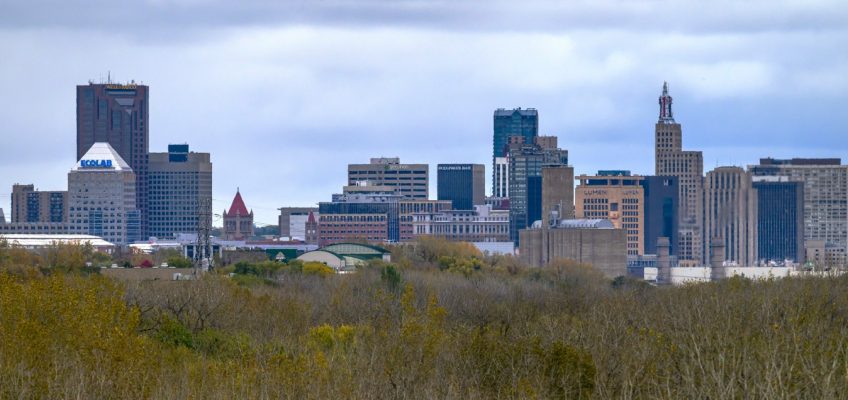We love St. Paul.
We worry about where the city stands and where it’s going, whether downtown, its neighborhoods, its schools, its businesses, its people.
There are public and private institutions talking about improvements, but no apparent inspiring vision or energized leadership pulling together the people and the resources needed to get the job of renewal done.
We fear that we too are trapped in the doom-loop cycle beleaguering once-great American cities, where the loss of businesses, jobs and services produces the lack of investment required for a rebirth of what we want as downtown.
This has become an intertwined economic, political and psychological problem to resolve.
Perhaps we are not asking the right questions as to what needs fixing, what needs to be done.
Perhaps with national trends of suburban movement, increased homelessness, political power shifting to suburban control, the loss of corporate managers with ties not to our cities but to their golden parachutes, the cities will never return to the reality from which we seek to benefit and enjoy once again.
Perhaps, St. Paul will require a new way of thinking about what a future city and downtown can and should become. We need inspiration knowing that from inspiration comes leadership and that from leadership comes achievement.
What can be our vision?
St. Paul is about people, not money; always has been. It is about families and communities.
But therein lies a problem: St. Paul is a collection of communities, not really a city. The assets of St. Paul are separated one from another like a pile of Lego pieces waiting to be assembled into a stunning construction.
How do we assemble the pieces? Who will come up with the vision?
We cannot separate downtown from the vitality of our neighborhoods and a metropolitan context.
We are fortunate to have a multitude of existing resources. We have five strong colleges and universities, two law schools; we are located on a beautiful major river.
We have a health industry complex. We have state government. We have a History Center and a Science Museum; parks and a zoo and a soulful Japanese garden; theaters; The Ordway and the St Paul Chamber Orchestra; artists; weekend markets.
We have a history which forms the basis for tourism.
We have an educated workforce.
We have an increasingly international demography, producing the workforce, culture, restaurants, art and ethnic mix of the present and future.
We have these existing resources, without utilizing the two-way benefits of having the educational resources, river, ethnic composition, educated workforce and strengths of people who love our city.
We have district councils which allow a higher level of participation for every citizen.
What we have not done is determine how to build the circular systems, where every citizen, resource, institution and service is defined not as a cost or problem, but as a capital asset contributing to the larger community in tandem with all the other capital assets – financial, educational, social, cultural.
We have hundreds of small businesses, seeking to grow, but more often worry about how to retain the few large corporations, some of whom can move on the decision of an absentee corporation, without any familiar or historical ties to St. Paul. We need to place more emphasis upon strengthening our small businesses,
If we wait for the city government to provide that leadership, we will fail.
The Caux Round Table for Moral Capitalism will soon convene a process to build the vision and framework for a citywide circular system.
Related Articles
Collins, Kutelia: Get Russia right. End the ‘resets’ and win the peace
Skywatch: Celestial monsters and a ghost
Your Money: Financial stress can lead to avoidance, survey says
Working Strategies: Job search best practices require discipline
Joe Soucheray: Trump lacks grace — and permission — in his destruction of East Wing
It will include representatives from public, private, informational, educational and civic groups.
We have the potential to create the St. Paul for the future.
The world has changed and we cannot re-invent the past.
We are St. Paulites. We love our city and the neighborhoods.
We have problems which will not disappear, but which can be overcome with resolve, imagination and the courage of our convictions. We stand at the edge of a new frontier.
As an admired president once told us: “All this will not be finished in the first one hundred days. Nor will it be finished in the first one thousand days, nor in the life of this Administration, nor even perhaps in our lifetime on this planet. But let us begin.”
Todd Lefko is a member of the board of the Caux Round Table for Moral Capitalism and Stephen B. Young is its global executive director.


Leave a Reply